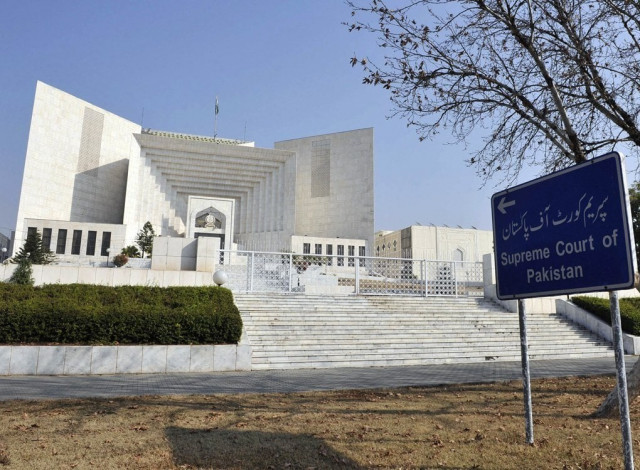Senate polls: SC to announce opinion regarding presidential reference on March 1
The court on Thursday concluded its proceedings on presidential reference seeking legal opinion

Supreme Court will announce its opinion on March 1 regarding presidential reference to hold Senate elections on open ballot without a constitutional amendment.
Supreme Court on Thursday concluded its proceedings on presidential reference seeking legal opinion to hold Senate elections on open ballot without a constitutional amendment and reserved its decision in the case.
The case was heard by a five-judge larger bench, headed by Chief Justice of Pakistan Gulzar Ahmed.
The attorney for the Election Commission of Pakistan (ECP), Sajeel Swati, requested the bench to announce its opinion by February 28, in order to make relevant arrangements for the Senate elections which are scheduled for March 3.
Attorney General of Pakistan (AGP) Khalid Javed Khan said the deep state always believes in secrecy and not transparency.
Hearing the case earlier this week, the CJP had remarked that it was up to the Parliament to decide whether balloting in the Senate should be open or secret.
"We will only respond to the questions that have been asked in regards to the reference; the court only has to determine whether Article 226 of the Constitution applies to the Senate elections," Justice Gulzar had said.
He had stressed that every institution of the state has to perform its work while remaining under its ambit; the Supreme Court wasn't an alternative for the parliament.
The federal government through Attorney General for Pakistan Khalid Jawed Khan filed the presidential reference under Article 186 of the Constitution, seeking opinion of the apex court as to whether the Senate elections are held under the Constitution (Article 226) or under the law (Election Act 2017).
The government had contended that the Senate elections are held under the law and therefore there was no need to amend Article 226 of the Constitution.
In view of its contention, the government has already promulgated an ordinance, allowing open ballot in the Senate elections. However, the enforcement of the ordinance is subject to the verdict of the Supreme Court.
Earlier, the government had tabled a constitution amendment bill in parliament to introduce open ballot but it vain.
The judges have raised several questions during all hearings. First, the bench focused on the legal question, which is main subject of the presidential reference.
Suddenly, the judges raised the questions over the applicability of Article 218 (3), stating, … it is the duty of the Election Commission of Pakistan (ECP) to organise and conduct election and to make such arrangements as are necessary to ensure that the election is conducted honestly, justly, fairly and in accordance with law, and that corrupt practices are guarded against.
Later, the apex court summoned the chief election commissioner along with all ECP members to inform it about the election scheme to curb corrupt practices in the country.
The CEC, while disagreeing with the majority judges observations, had stated that legislation would be required for identifiable/traceable ballot.
He stated that secrecy of ballot was ‘absolute’. Upon that, the chief justice expressed disappointment.
Later, ECP has asked all candidates for Senate elections to submit their affidavit that they would not involve in corrupt practices.



















COMMENTS
Comments are moderated and generally will be posted if they are on-topic and not abusive.
For more information, please see our Comments FAQ